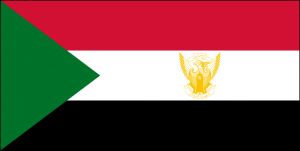Language/Sudanese-arabic/Vocabulary/Express-Surprise
Hi Sudanese Arabic learners! 😊
In this lesson, you will learn how to express surprise in Sudanese Arabic. Surprise is a natural human emotion that is expressed in many ways. Learning how to express surprise in Sudanese Arabic will make your speaking more fluent and your conversations more interesting. So, let's get started!
Once you've mastered this lesson, take a look at these related pages: Food & Drinks.
Basic expressions[edit | edit source]
Before diving into the specific expressions used to express surprise in Sudanese Arabic, let's first review some basic expressions:
| Sudanese Arabic | Pronunciation | English |
|---|---|---|
| مرحبا | marhaban | Hello |
| كيف حالك؟ | kayf halk? | How are you? |
| شكرا | shukran | Thank you |
| عفوا | afwan | You're welcome/excuse me |
Expressions of surprise[edit | edit source]
Here are some expressions that are commonly used when expressing surprise in Sudanese Arabic:
| Sudanese Arabic | Pronunciation | English |
|---|---|---|
| يعني شنو؟ | ya'ni shno? | What do you mean? |
| الله أكبر | Allahu akbar | God is great |
| واو | waw | Wow |
| باين عليك مفاجأت | bayin 'aleik mufaja'at | You seem surprised |
| سبحان الله | subhan Allah | Glory be to God |
| واضحة الصورة | wadhha al surrah | The picture is clear |
| كيف يعني؟ | kayf ya'ni? | How do you mean? |
Let's see these expressions in context:
- Person 1: يا ليتني ربحت المسابقة (ya laytani rabaht al maseebqa) - I wish I had won the competition
- Person 2: واو! باين عليك مفاجأت (waw! bayin 'aleik mufaja'at) - Wow! You seem surprised
- Person 1: لقيت فلوس في الشارع (laqait fulus fi ashaari') - I found money on the street
- Person 2: سبحان الله، باين عليك مفاجأت! (subhan Allah, bayin 'aleik mufaja'at!) - Glory be to God, you seem surprised!
- Person 1: قال لي بيحضرني بكرة (qal li bi-7adhdhurni bukra) - He said he will visit me tomorrow
- Person 2: يعني شنو؟ (ya'ni shno?) - What do you mean?
- Person 1: إيه دا زمان الأمتحانات صعبة (eeh da zamane al amtihaanat sa'bah) - Oh my, exams were hard in those days
- Person 2: واضحة الصورة! (wadhha al surrah!) - The picture is clear!
- Person 1: هو بيعمل كدا ليه؟ (huwa bay'amal kida leih?) - Why is he doing that?
- Person 2: كيف يعني؟ (kayf ya'ni?) - How do you mean?
Cultural insights[edit | edit source]
Expressions of surprise can vary widely from region to region. In Sudan, many expressions are based on religion and Islamic themes. For example, "Allahu akbar" is a common expression of surprise, but it is also an Islamic prayer. Similarly, "subhan Allah" means "glory be to God."
It is also worth noting that Sudanese Arabic is spoken in different dialects in different regions of the country. Therefore, there may be some variations in the expressions used to express surprise depending on the region in which a person is speaking.
To better understand the unique features of Sudanese Arabic and expressions of surprise, you can find native speakers and ask them any questions.
Practice[edit | edit source]
To practice using expressions of surprise, try using them in conversations with native speakers of Sudanese Arabic. You can also practice by thinking about different situations and imagining what you might say if you were surprised. The more you practice, the more comfortable you will be with expressing surprise in Sudanese Arabic.
Conclusion[edit | edit source]
In this lesson, we have learned several expressions commonly used to express surprise in Sudanese Arabic. We have also explored some cultural aspects of Sudanese Arabic that influence the language's expressions of surprise. Remember that the best way to improve your Sudanese Arabic skills is by practicing with native speakers and immersing yourself in the language.
➡ If you have any questions, please ask them in the comments section below.
➡ Feel free to edit this wiki page if you think it can be improved. 😎
Sources[edit | edit source]
Well done on mastering this lesson! Don't miss these related pages to expand your knowledge: Geography & Days of the Week.

